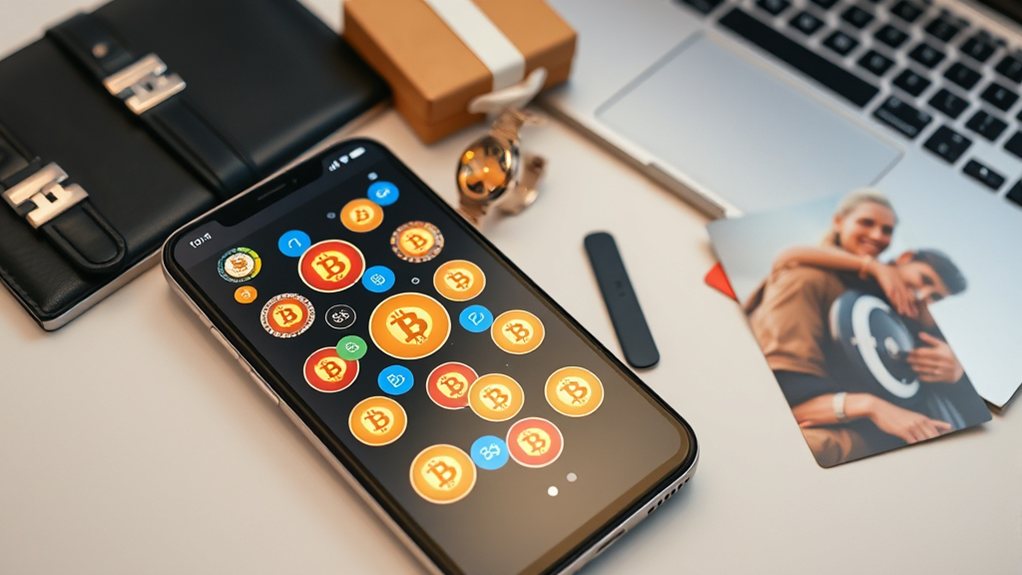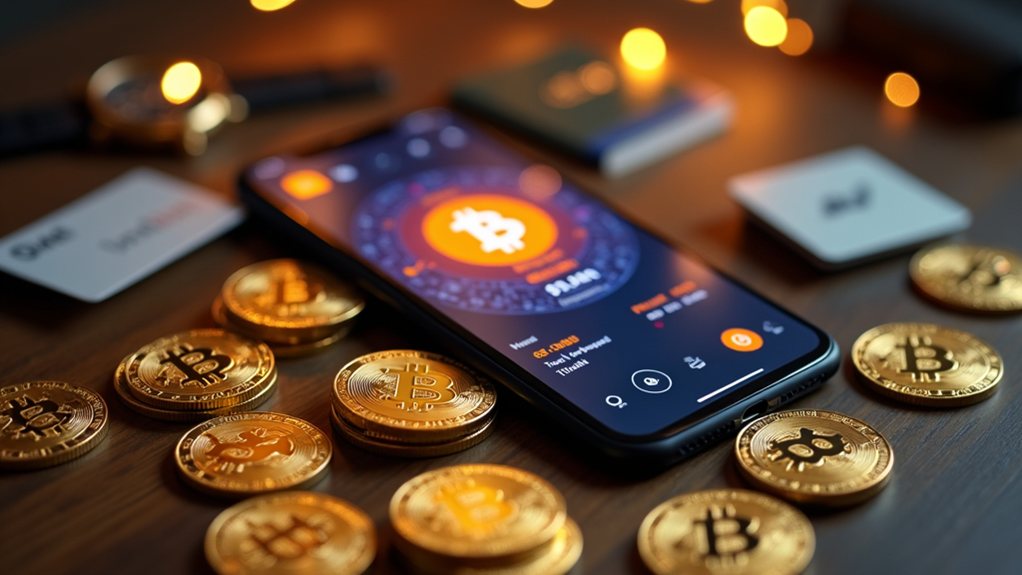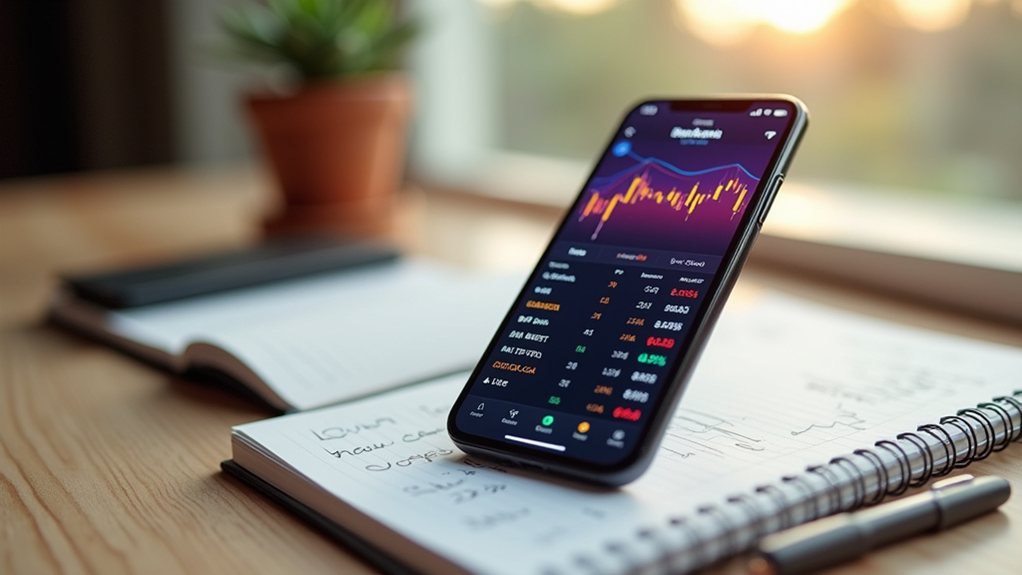Bitcoin isn't just for crypto bros anymore. Everyday shoppers get discounts at Overstock and even Amazon through Purse.io. Travelers book flights on CheapAir while philanthropy-minded folks donate to Wikipedia and Red Cross. Investors treat it like digital gold or earn interest through BlockFi. Need to send money internationally? Skip the bank fees. The crypto-curious have plenty of options beyond just HODLing in a digital wallet.

While cryptocurrencies once seemed like a fringe investment, Bitcoin has evolved into a versatile financial tool with practical applications beyond speculation. Those digital coins sitting in your wallet? They're not just for HODLing anymore. Major retailers like Overstock and Newegg have embraced Bitcoin as payment.
Want Amazon discounts? Purse.io offers 15-20% off when you shop with Bitcoin. Bitrefill has gift cards for over 1500 brands. Digital goods, VPN services, web hosting – all available with those magical internet coins.
Shop smarter with Bitcoin—unlocking Amazon discounts, gift cards, and digital services without touching your bank account.
Travel plans? Bitcoin's got you covered. Expedia and CheapAir let you book flights and hotels without touching your bank account. Feeling fancy? BitLuxury handles upscale vacations, and TapJets lets you charter private jets with crypto.
Airport lounges through Lounge Key, travel experiences via GetYourGuide – all within reach of your digital wallet. No currency exchange fees. No international transaction hassles. Just book and go.
Feeling charitable? Wikipedia takes Bitcoin donations. Open-source developers appreciate GitCoin contributions. Major organizations like Save the Children and American Red Cross accept crypto.
The BitGive Foundation channels Bitcoin to scientific research. Legal defense funds and bail funds – they'll take your crypto too. Donations without intermediaries. Direct support for causes you care about.
Beyond spending, Bitcoin serves as an investment vehicle. Some hold it long-term as a digital gold equivalent. Others put it to work earning interest on lending platforms like BlockFi.
Regulated exchanges offer Bitcoin futures and options. Bitcoin ETFs provide exposure through traditional investment accounts. Setting up a dollar-cost averaging strategy can help minimize risk when investing in Bitcoin's volatile market. Many users appreciate the ability to make regular smaller buys rather than one large purchase. Need cash but don't want to sell? Use Bitcoin as collateral for loans on DeFi platforms. Flexible financial tools for the digital age.
Peer-to-peer payments shine with Bitcoin. International transfers without the bank fees? Done. Splitting bills with friends through apps like Bottlepay? Easy. Paying freelancers across borders? Seamless.
Tipping content creators on Twitch and Reddit? Just a few clicks. Decentralized finance protocols are transforming traditional banking by offering higher yields and greater control over your assets.
Luxury beckons for the Bitcoin-rich. High-end watches from Chronoswiss, fine art through Maecenas, real estate, luxury cars, custom jewelry – all available for the right amount of satoshis. Dream big or go home.
Even education embraces crypto. Udemy courses, academic research funding, textbooks, blockchain conferences, coding bootcamps – knowledge paid for with the currency of the future. No student loans required.
Bitcoin isn't just magic internet money anymore. It's a practical tool for daily life, big purchases, and future planning. The financial system is changing.
Those who understand Bitcoin's utility beyond price charts are ahead of the game. No permission needed. No gatekeepers. Just possibilities.
Frequently Asked Questions
Is Bitcoin Secure for Everyday Purchases?
Bitcoin offers reasonable security for everyday purchases when proper precautions are taken.
Hardware wallets and multi-signature features provide strong protection. Still, risks exist. Transactions are irreversible—tough luck if you're scammed.
Price volatility can make your morning coffee cost a fortune by afternoon. Regulatory uncertainty looms large.
Bottom line: secure? Yes. But users must remain vigilant about protecting private keys and avoiding phishing attempts.
How Do I Protect My Cryptocurrency From Hackers?
Hackers love crypto. Easy target.
Protection starts with cold storage—keep most assets in hardware wallets disconnected from the internet. Period.
Two-factor authentication is non-negotiable for exchanges. Avoid SMS verification (hello, SIM swapping).
Dedicated devices for transactions help. Public Wi-Fi? Terrible idea for crypto management.
Distribute holdings across multiple wallets. One hack shouldn't wipe you out.
Regular account monitoring catches suspicious activity early.
What Taxes Apply to Bitcoin Transactions?
Bitcoin transactions trigger various tax obligations.
Capital gains tax applies when selling, trading, or using Bitcoin—short-term rates hit 10-37%, long-term 0-20%.
Income tax kicks in for mining rewards or receiving Bitcoin as payment.
The IRS wants its cut, period. Transactions over $10,000 require reporting.
And yes, they're tracking. Those "tax-free" crypto dreams? The government laughed.
Keep records or face audits and penalties.
Can Bitcoin Transactions Be Reversed if Mistakes Occur?
Bitcoin transactions cannot be reversed. Once confirmed on the blockchain, they're permanent. No take-backs. Period.
For unconfirmed transactions, limited options exist like Replace-by-Fee, but it's a narrow window of opportunity.
After confirmation? Tough luck.
The only "reversal" is if the recipient voluntarily returns funds. Not exactly reassuring, is it?
This irreversibility is both Bitcoin's strength and its potential pitfall.
Which Countries Have Banned or Restricted Bitcoin Usage?
Several nations have outright banned Bitcoin. China, Egypt, Algeria, Bolivia, and Nepal implemented full bans, citing financial stability concerns.
Others enforce partial restrictions—India prohibits bank facilitation, while Indonesia and Turkey ban crypto payments but allow trading.
Islamic countries like Bangladesh and Morocco have their own prohibitions.
Some nations are still figuring it out: Pakistan, Nigeria, and the UK are exploring various restrictions.
Pretty common for governments to hate what they can't control.








